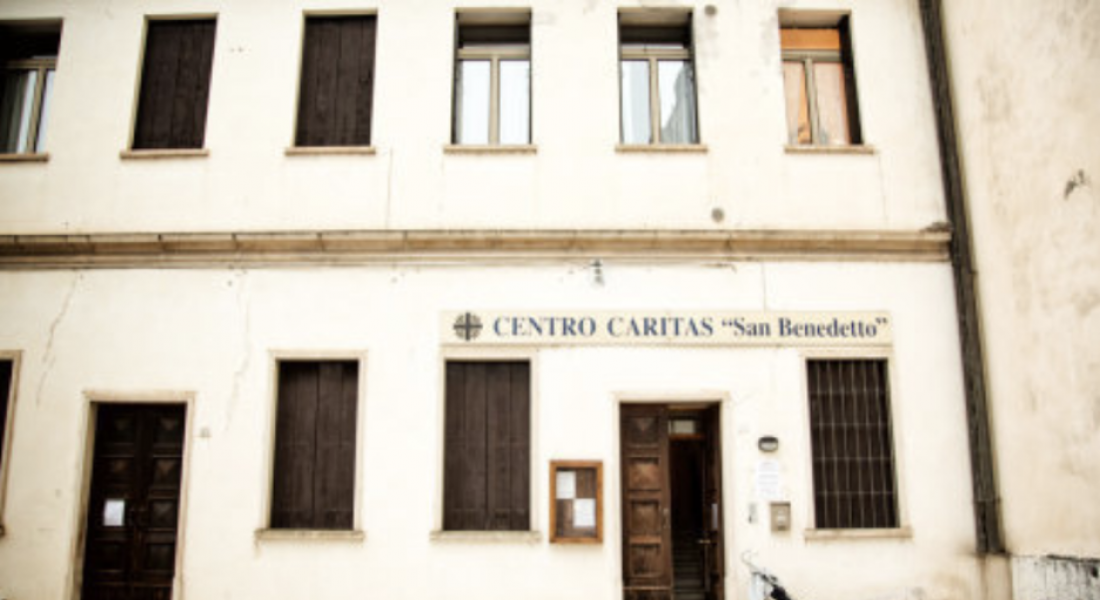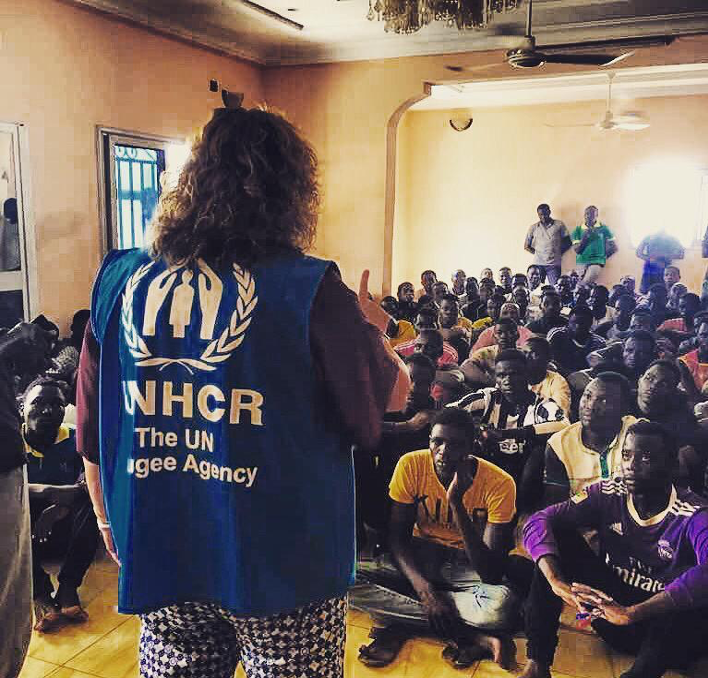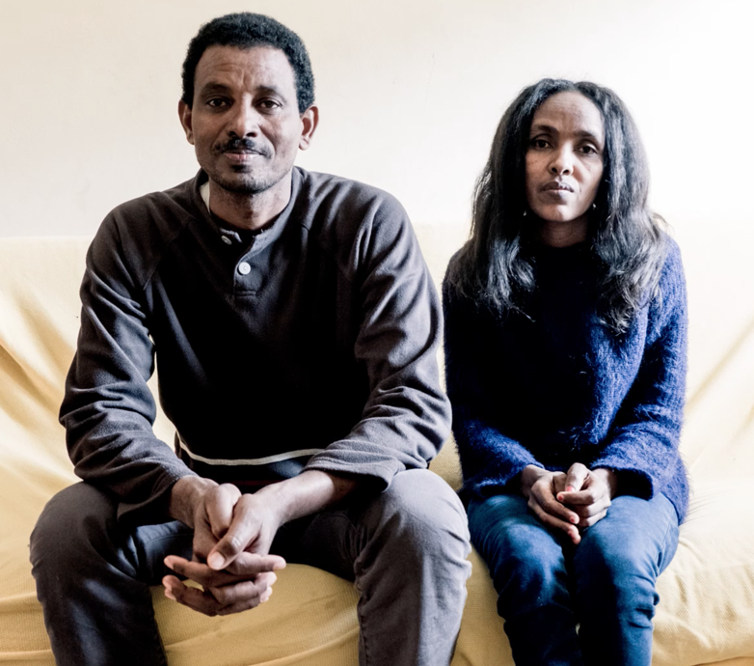
The global coronavirus pandemic has tested and reshaped societies around the globe, including national and international refugee support systems. The reported experiences of refugees, volunteers and social workers convey how local communities can continue to support and integrate each other through messages of courage, trust, perseverance and kindness. These messages can strengthen the efforts to remain resilient despite the logistical challenges that quarantine has brought about. As Maurizio Albahari wrote in a recent blog post, “Migrants are not (and should not be) excised from the relations of responsibility, respect, trust, solidarity, reciprocity, and interdependence that are integral to each person’s dignified agency and to the broader polity’s good.”
It is the most vulnerable who pay the highest price, however. As elsewhere, a majority of refugees in Italy have experienced the loss or interruption of jobs, routines, and social networks. These losses have interrupted or halted their integration into society and threatened their economic independence and autonomy. Moreover, as the United Nations’ Refugee Agency (UNHCR) notes, “COVID-19’s disproportionate impact on people on the move contrasts with their outsized role on the frontlines of responding to the crisis—highlighting their broader contributions to societies around the world—while caring for the sick and elderly or keeping up food supplies during lockdowns. . .” (UNHCR policy brief: “COVID-19 and People on the Move,” June 2020).
For example, UNHCR reports that “about one in eight of all nurses globally is practicing in a country different from where they were born” (16) and that “the crisis has led to a shortage of seasonal farm workers in the agriculture sector in North America, which is heavily dependent on migrant workers. Similarly, in Europe, there is an estimated shortfall of up to one million seasonal agricultural workers.” (16/17)
Pope Francis has called upon the Catholic Church and the world to exercise greater solidarity to ensure that the most vulnerable are not left behind. In May 2020, he dedicated the 106th World Day of Migrants and Refugees message to the drama of internally displaced persons, “an often unseen tragedy.” People on the move “offer us this opportunity to meet the Lord” by knowing them, listening to them and becoming their neighbors, he said. “If we really want to promote those whom we assist, we must involve them and make them agents in their own redemption by creating spaces of hospitality and fraternity.”
But how might we promote solidarity with refugees and migrants in the time of coronavirus, when borders are closed to all? In a time in which countries and host communities narrow their focus in order to mitigate their own losses, how might refugee support systems adapt to these new circumstances?
Humanitarian corridors: A safe and legal path
On February 19, the first case of COVID-19 was detected in Italy. As of February 23, the Italian Parliament had approved three decree-laws, outlining urgent measures for the containment and management of the epidemiological emergency. Economic data released in May by the Italian Central Bank indicate that Italy has fallen into recession since the beginning of the pandemic; its Gross Domestic Product (GDP) plummeted by 4.7 percent in the first quarter of this year. The International Monetary Fund estimates predict that the 2020 GDP of the so-called Eurozone will be down by seven-and-one-half percent and that Italy’s will decrease by nine percent at the end of the year. The sectors that will suffer the most include tourism, construction, agriculture, and personal care—all sectors which principally employ foreign labor with regular and irregular employment contracts.
“This is a traumatic experience,” laments Domenico Leggio, director of Caritas Ragusa. “We have many local families and immigrant families who had created a solidarity network, an informal network; families in Ragusa used to move forward with a ‘silent’ solidarity and to be active in helping people without us (Caritas) having to ask for it or hanging posters. But now we see that this network is failing. For many refugees this means taking ten steps back after being at the verge of autonomy and freedom.”
Due to its location, Italy has received a significant number of asylum-seekers over the years. In response to this crisis, the Italian Bishops’ Conference and Caritas Italy in 2017 launched the Humanitarian Corridors Project (HCP), a safe and legal pathway for vulnerable refugees to access Italy. As a private sponsorship program intended to welcome and integrate refugees, HCP offers a personalized, integrated approach to accompanying refugees through the support of a host family for a minimum of one year.
In 2018, the Ford Program in Human Development and Solidarity at the University of Notre Dame was invited to partner in the monitoring and evaluation of the Humanitarian Corridors Program in Italy (HCPI) for five years. What measures to advance integral human development are being put in place? With this question in mind, we are looking for certain practices crucial to the flourishing of both refugees and host communities. In order to further document the HCP experience, we launched Human Lines, a web documentary intended to capture the complexity of refugee integration through the testimonies of refugees and host communities.
Emergent findings: accompaniment and integration
Initial findings suggest that some refugees entering Italy through the HCPI who successfully integrate into Italy have benefited from a culturally and spiritually nuanced process of encounter and accompaniment undertaken by the host families, communities, and project coordinators. The process involves supporting the refugees as they navigate the bureaucratic process of obtaining legal status and as they strive for linguistic autonomy by studying Italian and gaining work opportunities and traineeships.
Consistent accompaniment involves a dialogue between the social workers and volunteers when their relationships with the refugees are challenged by cultural misunderstandings, linguistic nuances, and day-to-day tensions. Finally, accompaniment involves respect and support for the refugees’ freedom.
Our research has shown that refugees are more likely to become integrated into society when they experience a mutually enriching accompaniment with social workers and volunteers. Integration becomes not merely a matter of logistics and problem-solving but rather a phenomenon that generates a common life in which each person–refugee, volunteer, and social worker–is accepted and honored.
The impact of coronavirus on Humanitarian Corridors
The first of the government emergency decrees—blocking the scheduled entry of refugees from Niger on February 25—had a decisive impact on Humanitarian Corridors activities. Oliviero Forti, Head of the immigration office at Caritas Italy, shared his concerns regarding the “suspended lives” of refugees due to the global pandemic. “People are waiting for answers,” he confided to us. “They are waiting to know when their incredible story will finally end . . . (and) we are waiting to understand when they can leave and when we can transfer people.”
We also asked Alessandra Morelli, UNHCR representative in Niger, how the refugees blocked at the border were coping with this new situation. “We are experiencing the wait in a very creative way, thanks also to the commitment of Caritas (Italy) at a distance,” she explained. “These people are learning Italian . . . (so) in a certain sense this waiting time . . . is not a time lived in anxiety or uncertainty.” Morelli said that in this sense the humanitarian corridor has never closed. “I think it is this contact of care that continues to develop the good of the other . . . I love to understand it in this way: the humanitarian corridor, it is not only a logistical activity but it is a 360-degree treatment, which continues even if there is no flight.”

Nonetheless, Caritas Italy estimates that the food needs of families requesting aid have increased from twenty to fifty percent while on average the diocesan Caritas have seen an increase of 114 percent in people seeking economic and food aid and psychological and personal support. In response, Caritas had to increase their activities and re-configure programs. Diocesan Caritas units have been at the forefront of collaboration with municipalities to identify those qualified to receive aid and to organize the distribution of food and basic services supported by the Italian government’s emergency funds.
Testimonies of volunteers and Caritas social workers describe the urgency of the moment. Their appeals for support for the refugees underscore the importance of the relationships between the refugees and members of host communities. The ability of the refugees to maintain routine is another crucial aspect of accompaniment that promotes long-term integration.
In light of all this, social workers and volunteers have begun to rethink the way in which refugees can be accompanied during the pandemic. The first immediate response was to sensitize refugees to the new emergency. Giuditta Serra, the social worker of Kemay cooperative operating within the Diocesan Caritas of Brescia—one of the regions most affected by the pandemic—explained that, to do this, “we made phone calls to make sure that (the refugees) were doing well, that they understood the rules, that they were implementing all the provisions on security, restriction of freedoms.”
Additional support is required to expand services beyond addressing basic needs. Workers encourage refugees and provide them with additional opportunities for language courses and other educational experiences—restoring an experience of routine and a sense of normalcy. In Asti, for example, Caritas practitioners identified lack of oral communication and started to support the refugee family with additional Italian language conversations. In Erba, the host community helps T. – a refugee from Eritrea – to study for the driving license test. T. dreams to drive in his new town independently and work as a chauffeur.
Many work activities and the incomes connected to them have disappeared or declined significantly. In many locations, refugees who had found a job opportunity just before the pandemic, suffered the anxiety of losing their newly gained autonomy. It was difficult for them to return to forms of material assistance and dependency. In some towns host communities worked with employers to secure the jobs or to request temporary subsidies and income support. Emanuele Cappello, Caritas Asti’s social worker, reported that “ we had some concerns after the internship stopped and we are waiting for confirmation for the hiring (…) Given the difficult situation, we are hopeful.”
Remarkably, refugees reciprocate the help received from the host community. In Brescia, a social worker explains: “I wake up every morning with four or five text messages from boys and girls that we host (migrants and refugees), asking me how I am. They worry about my parents.”
If managed properly, the current difficult circumstances can become an opportunity to build stronger communities and reinforce human dignity, thereby generating sustained solidarity.

Kellogg Faculty Ilaria Schnyder von Wartensee is the Ford Family Research Assistant Professor at the Keough School of Global Affairs.
Kellogg MGA FEllow Maria Belen Zanzuchi is a 2020 graduate of the Keough School’s master of global affairs program.
Sarah Herbers is a Notre Dame undergraduate majoring in applied and computational mathematics and statistics and Italian studies.





